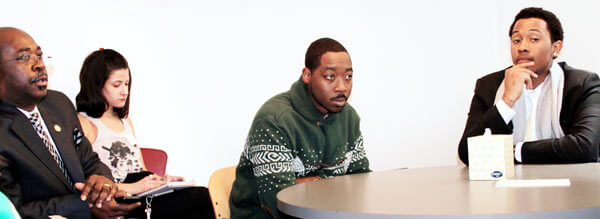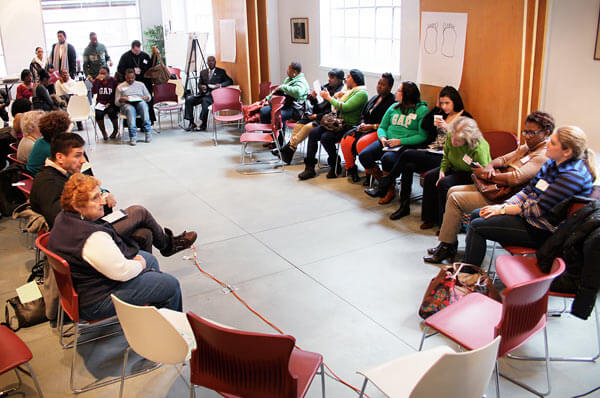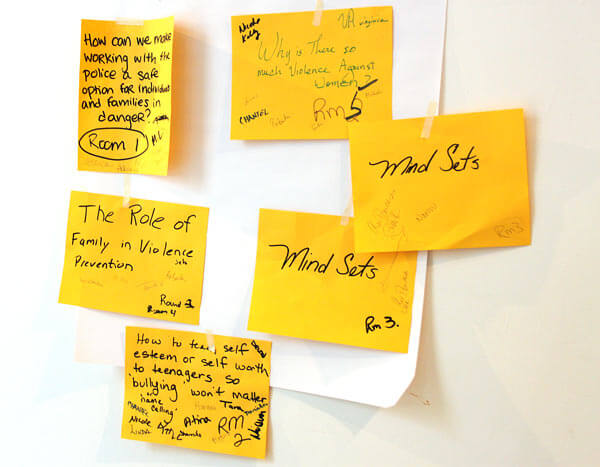By Rich Bockmann
Open Space is a management style that eschews a rigid agenda in favor of group organizing that has been used by large corporations and independent computer coders, and last week a Jamaica nonprofit put it to use to address violence in the community.
“We’re in the business of helping people make wiser decisions, and often decisions dealing with conflict are the most difficult to make,” said Community Mediation Services Executive Director Mark Kleiman, who favors a holistic, group-based approach to problem solving. “We wanted to do something as an agency that speaks to how we see solutions happening.”
Many responses to the violence in southeast Queens come in the form of town hall meetings or forums called by public officials, but Kleiman said he wanted to do something where the process would be as cathartic as any possible solutions.
“That’s what the process does,” he said. “It’s open-ended, democratic and fully participatory.”
The first principle of Friday morning’s meeting was “Whoever comes is the right person,” and the center’s office on 163rd street was filled with dozens of people of people, including those from the institutional, faith-based and business communities.
They began only with the topic of addressing violence. The next step asked each participant to write down what they wanted to discuss and post those ideas on a wall. The topics were split into different groups, and for the rest of the morning people organized their own discussions.
In one room, Devon Cudjoe, 20, and a handful of others talked about a lack of services for youth, especially those who have crossed the line beyond “at-risk.”
“It’s easy to say, ‘Don’t commit crimes,’ but what are the alternatives?” asked Cudjoe, who is on probation for a burglary conviction.
He and the group discussed issues of reactive vs. proactive responses to poverty and crime, as well as the difficulties of accessing government services.
Kelly Titus, who discussed how agencies could better support at-risk teens, said she thought the experience was “freakin’ awesome” and planned to bring the process back to her workplace at Manhattan’s Memorial Sloan-Kettering Cancer Center.
“What I thought was amazing is that we set an actual date and time for another meeting,” she said.
Toward the end of the meeting the groups convened in a circle to share what they experienced in the discussions.
Jermaine Washington, a youth officer with South Jamaica’s 113th Precinct, said he was surprised to find other people shared his particular concerns.
“I thought I was the only one who thought a problem was a problem,” he said. “It’s nice to know I don’t have to start from the ground up.
Cudjoe said he thought that despite the meeting’s loose organization, he saw a potential for solutions.
“It’s like jaywalking,” he said. “Everyone stands there in a line but once you move, they’ll follow.”
Reach reporter Rich Bockmann by e-mail at rbockmann@cnglocal.com or by phone at 718-260-4574.





































